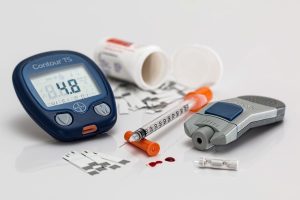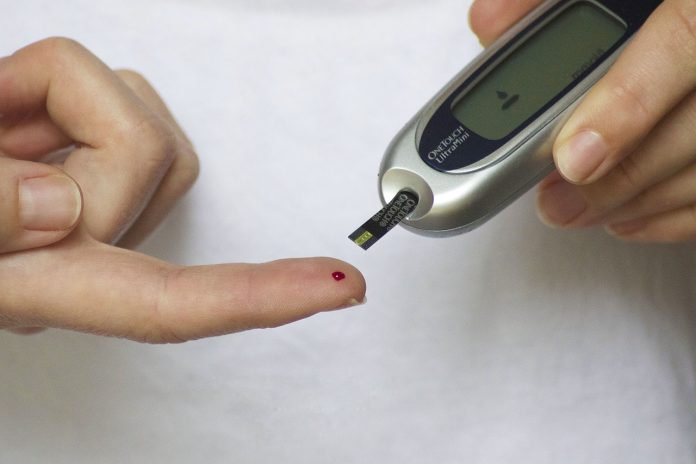The presence of diabetes with neuropathy can profoundly affect an individual’s life quality. Therefore, it is imperative to grasp and efficiently handle this medical condition. This comprehensive guide aims to provide insights into diabetes neuropathy, explore the relevant ICD-10 codes, and offer strategies for effective management.
Introduction to Diabetes with Neuropathy
Diabetes neuropathy denotes the deterioration of nerves resulting from prolonged elevated glucose levels in the bloodstream. It is a common complication of diabetes and can affect various parts of the body, including the peripheral nerves, autonomic nerves, and focal nerves. Understanding and managing diabetes neuropathy are essential for preventing further complications and improving overall well-being.
Understanding Diabetes and Neuropathy
Diabetes represents a persistent ailment marked by elevated levels of glucose, commonly known as sugar, circulating in the bloodstream. Neuropathy, conversely, entails harm to the nerves, resulting in symptoms like pain, tingling sensations, and numbness. In diabetes neuropathy, prolonged exposure to elevated levels of blood sugar can result nerve damage throughout the body.
Sugar Defender Top rated blood sugar formula
Click here to buy
Types of Neuropathy in Diabetes
There are several types of neuropathy associated with diabetes, each affecting different parts of the body. Peripheral neuropathy affects the peripheral nerves, autonomic neuropathy affects the autonomic nerves, focal neuropathy affects specific nerves, and proximal neuropathy affects the hips, thighs, or buttocks.
Symptoms of Diabetes with Neuropathy
The symptoms of diabetes neuropathy vary depending on the type and severity of the condition. Common symptoms include pain and tingling sensations, numbness, muscle weakness, digestive issues, and sexual dysfunction. These symptoms can greatly affect one’s daily functioning and require prompt management.
ICD-10 Codes for Diabetes Neuropathy
ICD-10 codes are alphanumeric codes utilized by healthcare professionals to categorize and encode diagnoses, symptoms, and procedures.. Accurate coding is essential for proper documentation, billing, and communication between healthcare professionals. Understanding the relevant ICD-10 codes for diabetes neuropathy is crucial for effective management and reimbursement.
ICD-10 Codes for Different Types of Neuropathy
Different types of neuropathy associated with diabetes require specific ICD-10 codes for accurate documentation. Peripheral neuropathy is coded differently from autonomic neuropathy, focal neuropathy, and proximal neuropathy. Healthcare providers must use the appropriate codes to ensure accurate diagnosis and treatment.
Management of Diabetes Neuropathy
Effective management of diabetes neuropathy involves a combination of lifestyle modifications, medications, physical therapy, and, in some cases, surgical interventions. Lifestyle modifications such as maintaining blood sugar levels, Participating in consistent physical exercise and adhering to a balanced dietcan aid in further nerve damage and alleviate symptoms.
Prevention Strategies
 Preventing diabetes with neuropathy involves adopting healthy lifestyle habits, regular monitoring, and early intervention. Maintaining optimal blood sugar levels, engaging in regular exercise, following a balanced diet, and attending regular check-ups are essential preventive measures.
Preventing diabetes with neuropathy involves adopting healthy lifestyle habits, regular monitoring, and early intervention. Maintaining optimal blood sugar levels, engaging in regular exercise, following a balanced diet, and attending regular check-ups are essential preventive measures.
Challenges in Managing Diabetes Neuropathy
Managing diabetes with neuropathy can be challenging due to various factors, including compliance issues, complications, and emotional impact. Patients may struggle to adhere to treatment plans, and complications such as infections and foot ulcers can arise, leading to further complications.
Importance of Regular Monitoring
Regular monitoring of blood sugar levels, nerve function, and overall health is crucial for effectively managing diabetes neuropathy. Healthcare providers should conduct regular check-ups, perform screenings for complications, and provide education and support to patients.
Supportive Care and Resources
Support networks, informative resources, and availability of medical experts play important role in supporting individuals living with diabetes neuropathy. Support groups offer emotional assistance and practical guidance while educational materials offer valuable information on managing the condition.
Living with Diabetes Neuropathy: Tips and Advice
Living with diabetes neuropathy requires implementing diverse tactics to address symptoms and improve health. Daily foot care, pain management techniques, stress management, and regular exercise are essential for managing symptoms and preventing complications.
Research and Innovations
Ongoing research into diabetes neuropathy is is crucial for developing novel treatments and enhancing patient outcomes. Researchers are exploring potential breakthroughs in the treatment and management of neuropathy, offering hope for the future.
Addressing the Stigma Surrounding Diabetes
Dispelling myths and raising awareness about diabetes neuropathy can help reduce stigma and improve support for individuals living with the condition. Advocacy efforts aim to promote understanding, acceptance, and access to resources for those affected by neuropathy.
Conclusion
In conclusion, understanding and effectively managing diabetes with neuropathy is vital to live a healthy life. By exploring the relevant ICD-10 codes, adopting preventive strategies, and accessing support and resources, individuals can better manage their condition and live fulfilling lives.
Also Read: Can You Put Sunscreen on a New Tattoo? A Comprehensive Guide
Sugar Defender Top rated blood sugar formula
Click Here to buy
Affiliate Disclosure:
The links contained in this product review may result in a small commission if you opt to purchase the product recommended at no additional cost to you. This goes towards supporting our research and editorial team and please know we only recommend high quality products.
Disclaimer:
Please understand that any advice or guidelines revealed here are not even remotely a substitute for sound medical advice from a licensed healthcare provider. Make sure to consult with a professional physician before making any purchasing decision if you use medications or have converts following the review details shared above. Individual results may vary as the statements made regarding these products have not been evaluated by the Food and Drug Administration. The efficacy of these products have not been confirmed by FDA approved research. These products are not intended to diagnose, treat, cure or prevent any disease.




